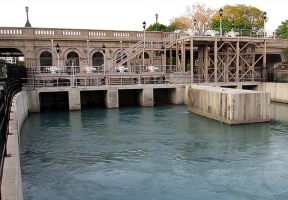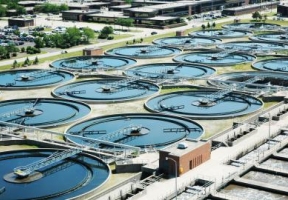

The Metropolitan Water Reclamation District of Greater Chicago (MWRD) is continuing to monitor the information it receives about the Coronavirus (COVID-19). The MWRD is following the guidelines of the U.S. Centers for Disease Control and Prevention (CDC) and Illinois Department of Public Health (IDPH) and consulting with local agencies like the Chicago Department of Public Health and international water professionals and utility and technology partners in the water sector.
Managing wastewater
The MWRD transforms an average of 1.47 billion gallons of water each day and returns it to the environment as clean water. At any given time, the MWRD encounters unpredictable and unique situations. The risk of transmission of COVID-19 through sewerage systems is low and data from previous outbreaks shows low transmission risk in human waste, according to the Water Environment Federation (WEF)
Handling regional wastewater
The Occupational Safety and Health Administration (OSHA) has expressed many of the same guidelines about handling of solid waste and wastewater that the MWRD already implements to providing critical oversight managing the region’s wastewater during these precarious times. The MWRD operations follow the OSHA guidelines by following routine practices to prevent exposure to wastewater, including using the engineering and administrative controls, safe work practices, and using the personal protective equipment (PPE) normally required for work tasks when handling untreated wastewater.
Sewage and Waste Control
Under the MWRD’s Sewage and Waste Control Ordinance and the Illinois Pollution Control Board’s Title 35 Procedural and Environmental Rules, the MWRD strives to protect public health and safety by abating and preventing pollution through the regulation and control of the quantity and quality of sewage, industrial wastes, and other wastes admitted to or discharged into the sewerage systems, sewage treatment facilities, and waters under the jurisdiction of the MWRD. Industrial waste ordinances governing industrial discharge limits will continue to remain in place. Discharges of potentially infectious medical wastes to the District’s sanitary sewerage system are expressly prohibited unless they comply with 35 Illinois Administrative Code, Subtitle C.









